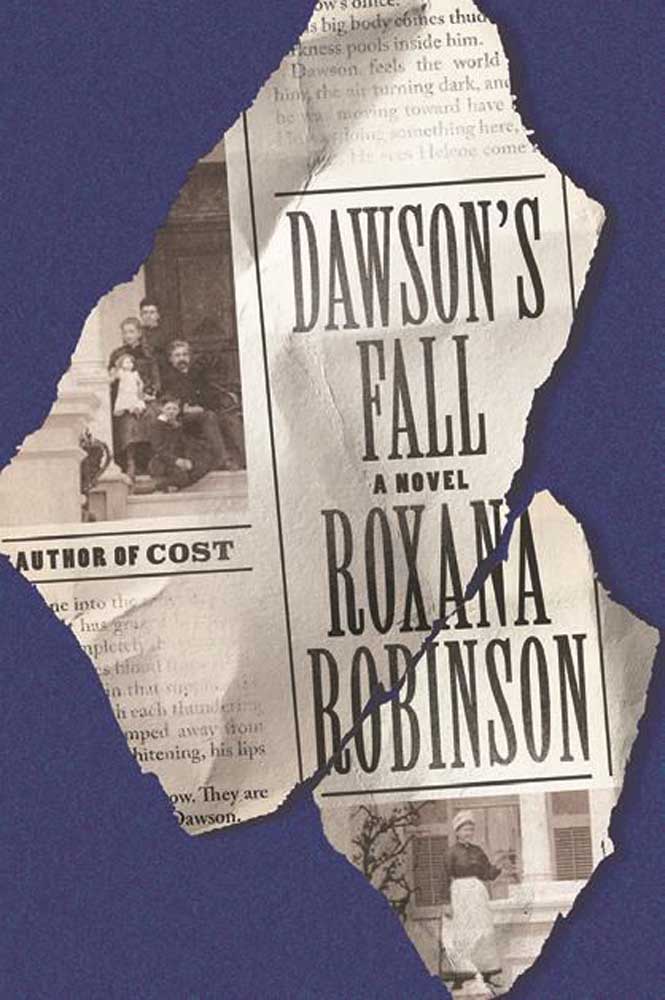A new book about the Civil War that speaks to the present day, too
Published 2:25 am Sunday, May 19, 2019

- "Dawson's Fall," by Roxana Robinson, published by Sarah Crichton/FSG, 352 pp., $27
A newspaper on the brink. Racial tensions that break out into violence. Roxana Robinson’s new novel is ripped from the headlines — but these headlines are from the end of the 19th century.
Based on the lives of Robinson’s great-grandparents, “Dawson’s Fall” is both rooted in its time and speaks directly to ours. It is also a moving love story between two people whose morality seems, from the perspective of 2019, sometimes to be muddied.
Frank Dawson fought for the Confederacy; his wife Sarah’s family owned slaves. “All Southern families who trace their bloodlines back before the Civil War are affected by that peculiar institution,” Robinson writes of her paternal lineage. The novel plunges us into that Southern legacy. (On her family’s other side, Robinson is related to the abolitionist preacher Lyman Beecher and Harriet Beecher Stowe, author of “Uncle Tom’s Cabin.”)
Like many Americans, Frank Dawson was a self-invented man. Escaping poor prospects in England, he catapulted across the Atlantic and found his way into the upper classes. When we meet him in the 1880s, Frank is a player in South Carolina, a jovial figure who has used his connections to manipulate politics for the greater good. As the owner of a moderate newspaper, however, his power may be on the wane; the paper is trying to hold its own against a popular new entry that is racist and inclined to incite violence.
Sarah Morgan grows up part of a close-knit, wealthy family in Louisiana whose fortunes are unraveled by the Civil War, devastated by the loss of one male family member after another. The losses affect Sarah profoundly.
Covering so much ground, starting with Dawson’s youth in England to his and Sarah’s separate experiences in the Civil War and through their courtship and marriage, the book has an epic sweep. But it’s also grounded: Robinson vividly evokes settings in just a few sentences.
After the war, we read of real threats faced by African Americans during the dissolution of Reconstruction when their access to power sent some whites into violent rage. Sometimes Dawson supports the cause of African Americans; other times, he does not. The worst pressure he gets is from conservatives on the right; by the 1880s he is haunted by nightmares.
Sarah manages their home, which by then includes two precocious children, daughter Ethel and son Warrington, and a handful of staff. Most notable among these is their Swedish nanny Helene, a young woman whose vanity is more apparent to readers than it is to her employers, who either overlook her or take her for granted.
The action ramps up in the final section of the book, which plays like a thriller in which Helene is the somewhat witless ingenue. Her employers go about their business. Meanwhile, we see whom Helene falls for, where they meet and what that means to the people around her.
Here Robinson has pieced together a century-old true crime, a murder in which all the witnesses are long dead. Using far-flung sources and excruciating care, she creates the map; her novelist’s skills render it in 3-D. Few Americans may have an ancestry as acutely divergent across the Mason-Dixon Line as Robinson has, but the legacy of slavery and the Civil War is still being felt by our nation. “Dawson’s Fall” is a richly envisioned attempt to reconcile with that troubled history.
Kellogg is the former books editor of the Los Angeles Times.






